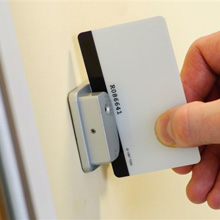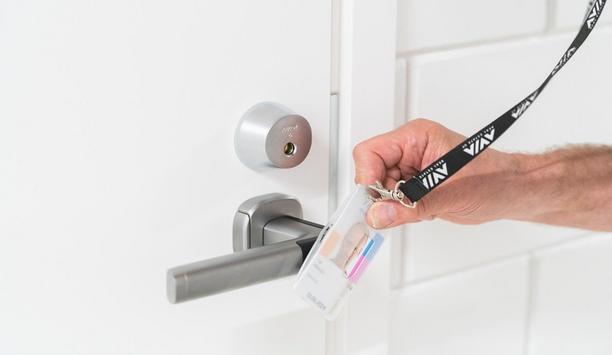The last few years have seen the risk (and also the perceived risk) to mass transportation passengers increase significantly, so there has also been a firm desire to make sure that individuals who enter secure areas do so with full clearance and authentication. This has become a prominent preoccupation for the travel industry, but thankfully the access control sector recognises and embraces these concerns and specialist manufacturer and supplier TDSi is leading the vanguard with regards to making travel facilities safer.
Security at airports has long been a concern, with hijacking and terrorist attacks being headline-grabbing examples of inadequate security. The airline industry and airport authorities have reacted positively to concerns, implementing ever-tighter security measures such as those at Bristol International Airport in the UK. Bristol International is the South West’s largest airport with 5.8 million passengers passing through the airport’s doors last year. Whilst rigorous security measures have always been in place, the increasing incidence of terrorist activities raised the need for an even more stringent approach.
The access control system at Bristol International Airport is based on a multiple PC network controlling the terminal building, Air Traffic Control and Pass Office and utilises the full built-in photographic ID system, providing the ability to maintain the integrity of the restricted zone and prevent unauthorised access to prohibited areas. TDSi’s EXgarde PRO access management PC software was chosen to provide the flexibility required from the system. The software allows unlimited key holders, multiple user groups and schedules, built-in badge design and creation while importantly maintaining a simple and intuitive administration procedure. Around a hundred doors, barriers and access control points are controlled using TDSi’s patented infrared Microcard™ readers and keypads.
Phil Holder, Operational Facilities Manager, at Bristol IA said: “We have found that TDSi’s solution has proved to be not only reliable but importantly provides all the security functions that we require. The TDSi access control system has been operating throughout the airport for the past five years and we have found the reliability of the system to be sound, and importantly, technical advice and back up are always available and provided as required.”
Threats to passengers, staff and facilities mean that airports have even had to secure some of the less obvious potential avenues of intrusion and potential attack – meaning all areas of the facility need to be scrutinised. TDSi has worked closely with the British Airports Authority (BAA) to implement an ID and access control system for staff car parks at Heathrow Airport for example. TDSi’s systems control and monitor over 40,000 staff across the airport site, ensuring that only authorised people enter the car parks and that personnel movement is monitored and recorded for security review and compliance purposes. To give an even wider picture, the TDSi system is fully integrated with the BAA personnel system and changes to airport staff records are dynamically carried out on the TDSi software – flagging potentially dubious behaviour or trends and alerting security teams of any abnormalities that could constitute a breach of security.
 |
| TDSi's EXgarde PRO access management PC software was installed at the Bristol International Airport |
Naturally airports are not the only mass transportation systems that need tight security and access control. Railway networks are also a potentially key target for intruders and nefarious individuals. Shanghai Metro in China is one of the newest and fastest growing rapid transit systems in the world, with 162 stations and over 225km of track running both above and underground. On average, well over two million passengers use the system everyday – with future expansion set to see that number increase to over three million.
TDSi and its partners STY and SMG have developed and supplied fully integrated access control solutions for the Shanghai Metro. Each Line is served by over 40 stations as well as its own Operational Control Centre (OCC), with around 2,000 doors secured and controlled by TDSi’s systems on each line. Commenting on the programme, TDSi’s Managing Director, John Davies said: “The Shanghai Metro is a very significant and high profile infrastructure programme, representing one of the largest access control projects across the whole of China so security is a prime consideration and has required solutions that are straightforward to use as well as highly secure.”
The access control solution for the project features TDSi’s EXpert controllers, EXgarde software platforms and MIFARE® smart card readers. Specified for its proven performance in high capacity applications, TDSi’s EX-Series controllers deliver a fully featured and networkable system. Each controller has a capacity of up to 48,000 cards and provides fast and effective access control for projects such as the Shanghai Metro, which has consistently high volumes of users passing through multiple access points.












